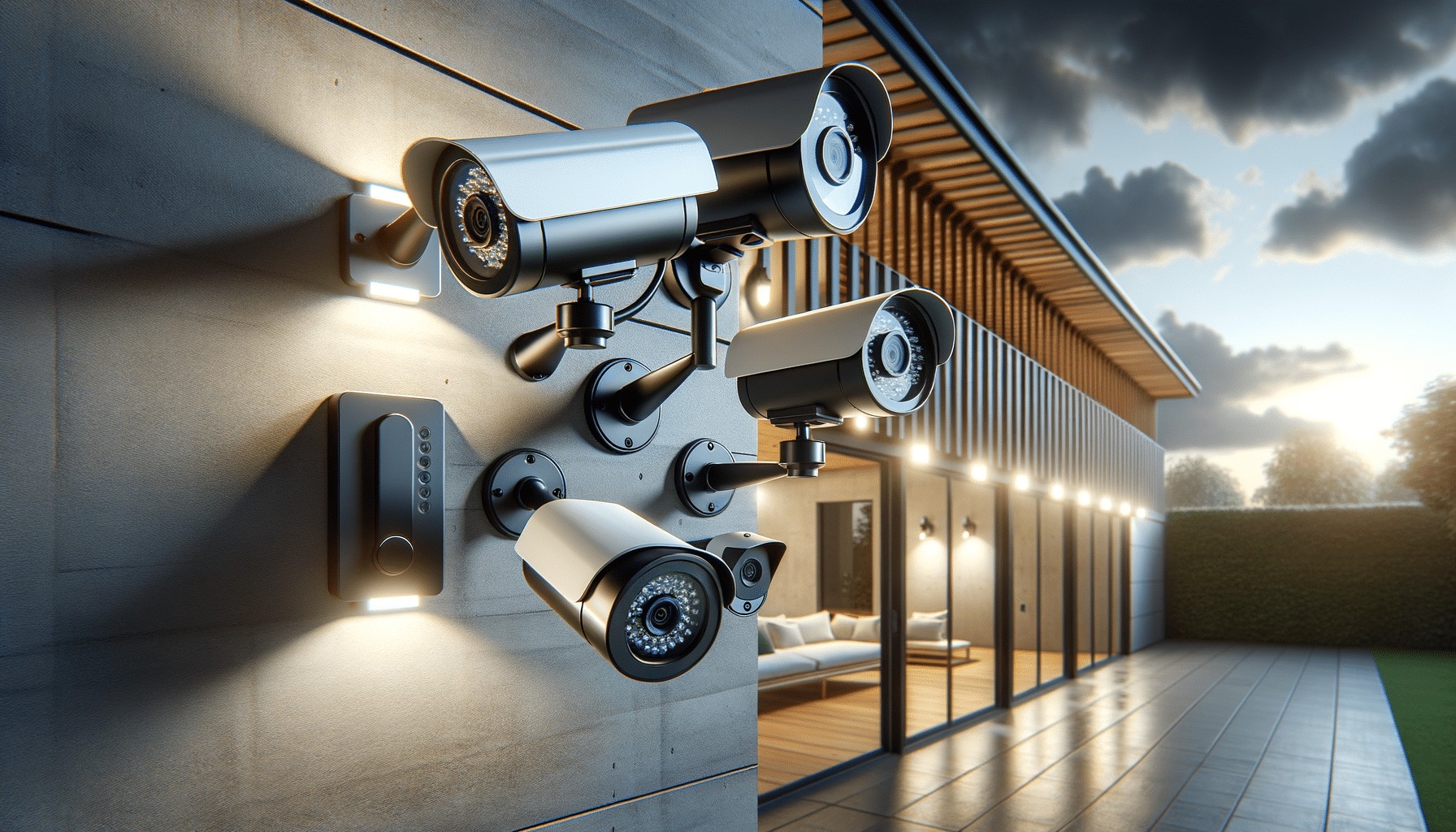
Elevate Your Home Protection with State-of-the-Art Camera Technology
The Importance of Security & Surveillance Cameras
In today’s world, ensuring the safety and security of our homes and businesses is more crucial than ever. Security & surveillance cameras have become an integral part of modern security systems, offering a watchful eye over our properties. These devices not only deter potential intruders but also provide valuable evidence in the event of a security breach. With advancements in technology, these cameras now offer features such as high-definition video, night vision, and remote access, making them indispensable tools for safeguarding our spaces.
The significance of security cameras lies in their ability to provide peace of mind. Knowing that your property is under constant surveillance can significantly reduce anxiety and stress, particularly when you’re away. Moreover, the presence of visible cameras can deter criminal activities, as intruders are less likely to target a location where they know they are being watched. This proactive approach to security is essential for both residential and commercial properties.
Technological Advancements in Surveillance Cameras
Technological advancements have revolutionized the capabilities of surveillance cameras, transforming them from simple recording devices to sophisticated security solutions. Features such as motion detection, facial recognition, and artificial intelligence have enhanced the functionality of these cameras, making them more effective in identifying and responding to potential threats.
Among the most notable advancements is the integration of AI technology, which allows cameras to analyze footage in real-time and distinguish between ordinary and suspicious activities. This capability not only reduces false alarms but also ensures that security personnel are alerted to genuine threats promptly. Furthermore, the development of cloud storage solutions has enabled users to store vast amounts of video data securely and access it from anywhere, adding a layer of convenience and reliability.
Choosing the Right Security Camera System
Selecting the appropriate security camera system for your needs involves considering various factors, including the size of the area to be monitored, the level of detail required, and the environmental conditions. For instance, outdoor cameras need to be weatherproof and capable of withstanding harsh conditions, while indoor cameras might prioritize aesthetics and unobtrusiveness.
When evaluating camera systems, it’s essential to consider the resolution and field of view. Higher resolution cameras provide clearer images, which are crucial for identifying individuals and details. Additionally, a wider field of view can cover more area, reducing the number of cameras needed. Other considerations include the camera’s connectivity options, such as wired versus wireless systems, and the availability of remote access features, which allow users to monitor their properties from anywhere via a smartphone or computer.
- Resolution and field of view
- Connectivity options
- Environmental suitability
- Remote access capabilities
Installation and Maintenance of Surveillance Systems
Proper installation and maintenance are critical to ensuring the effectiveness of security camera systems. While some homeowners may opt for DIY installation, professional installation services can ensure that cameras are positioned optimally for maximum coverage and effectiveness. Professionals can also integrate the camera system with existing security measures, such as alarms and lighting, to create a comprehensive security solution.
Regular maintenance is equally important to keep the system functioning efficiently. This includes cleaning the lenses, checking the connections, and updating the software to benefit from the latest security patches and features. Scheduled maintenance can prevent potential failures and ensure that the surveillance system remains reliable and effective over time.
The Future of Security & Surveillance Cameras
The future of security and surveillance cameras is promising, with continuous innovation driving the development of more advanced and intelligent systems. Emerging technologies such as the Internet of Things (IoT) and 5G connectivity are expected to enhance the capabilities of these cameras, allowing for faster data transmission and more seamless integration with other smart home devices.
As technology evolves, we can anticipate the introduction of cameras with enhanced AI capabilities, enabling them to learn and adapt to different environments and scenarios. This will result in more proactive security measures, where cameras can predict and respond to potential threats before they materialize. Moreover, the focus on privacy and data protection will lead to the development of more secure systems that safeguard users’ information while providing robust security solutions.


